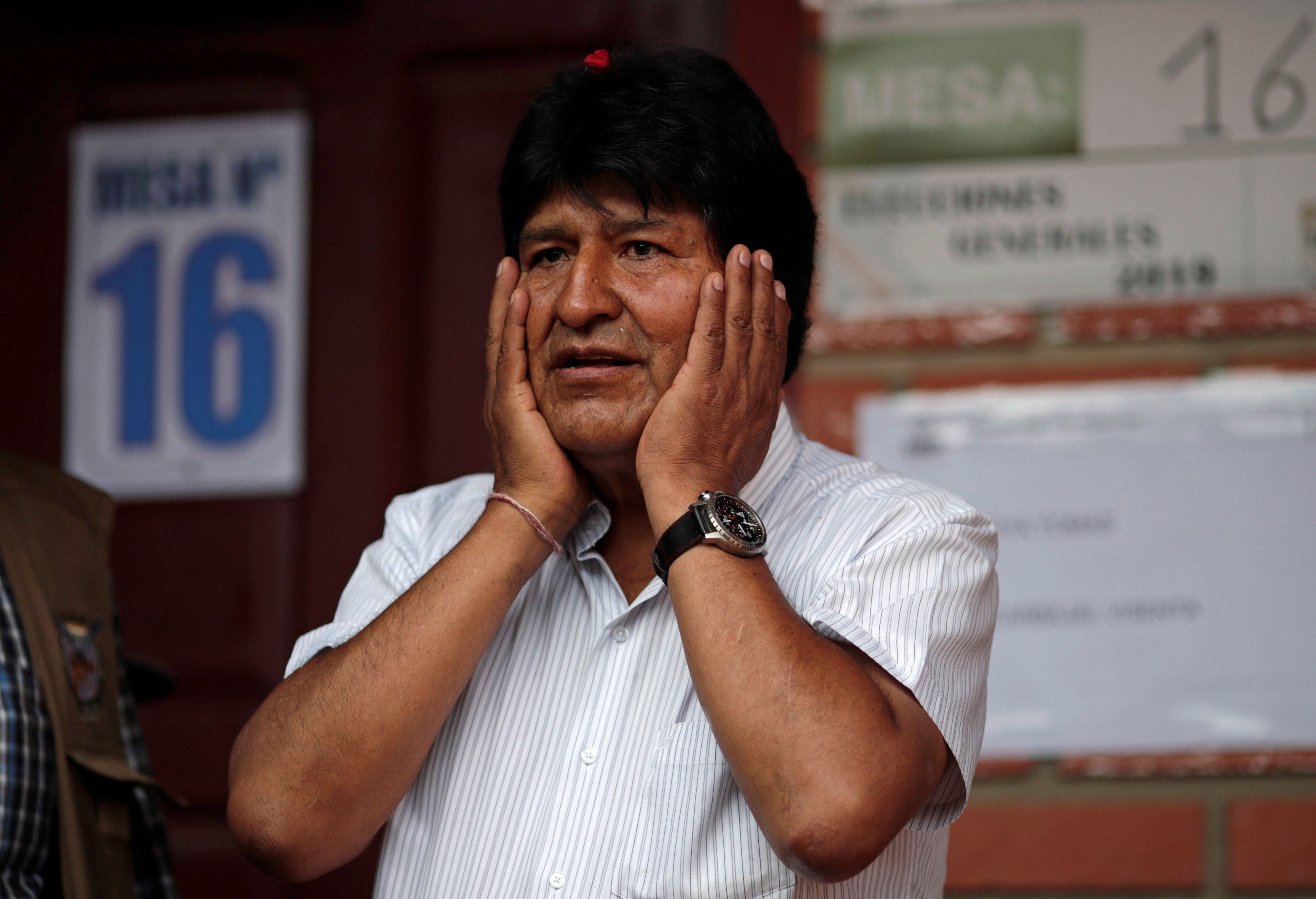November 11, 2019
Latin America's longest-serving head of state is now out. Bolivia's fiery leftwing President Evo Morales resigned on Sunday, after weeks of increasingly violent protests over his apparent bid to rig last month's presidential elections.
Although he agreed under international pressure to hold a fresh ballot, he and his vice president were ousted by the military after a number of local police units sided with demonstrators.
His supporters say this is an illegal coup that undermines democracy. His opponents say Morales' attempt to rig the election was the real assault on democracy and that the army has merely stepped in to restore order so that elections can be held.
How did we get here? Morales, who rose to prominence as the leader of the country's powerful coca growers union, was first elected in 2005 in what was, at the time, an extraordinary political turning point. For the first time, Bolivians had elected a leader who comes from one of the indigenous tribes that make up a majority of the country's population, people who had long suffered under an elite of European ancestry.
During his first two terms in power, Morales, a close ally of Venezuela's "21st century socialist" Hugo Chavez, nationalized the country's lucrative natural gas reserves and profited from a commodities boom to transform the country. The economy grew, poverty fell, literacy rose, and millions of indigenous Bolivians felt for the first time that they were truly represented in government.
But he also began to show an authoritarian streak, by extending state control over the media and the courts, and egregiously skirting the term limits that a majority of Bolivians had favored keeping in a 2016 referendum: he got a loyalist court to rule that term limits violated his "human rights." That led to the election last month in which Morales was locked in a tight race with an opposition challenger until the electoral authorities suddenly went dark for 24 hours…and then came back online with a double-digit Morales victory.
Now there is a vacuum. Morales and his deputies are out, and a leading opposition lawmaker is in line to serve as interim president until new elections are called. But it will be hard to broker a process for oversight of the vote: the opposition is fragmented and Morales' MAS party, which still controls Congress and has strong support around the country. Morales may even seek to run in the election himself.
The arc: There's a temptation, in a time of increasing political polarization, to look at politics always as a matter of good guys vs bad guys. Evo Morales has been both: his ascent to power marked a big leap forward for Bolivian society, but his eagerness to subvert the country's fragile democratic institutions now leaves his country in political limbo.
More For You
How is the US is reshaping global power dynamics, using tariffs and unilateral action to challenge the international order it once led? Michael Froman joins Ian Bremmer on GZERO World to discuss.
Most Popular
- YouTube
In this Quick Take from Munich, Ian Bremmer examines the state of the transatlantic alliance as the 62nd Munich Security Conference concludes.
- YouTube
At the 2026 Munich Security Conference, Brad Smith announces the launch of the Trusted Tech Alliance, a coalition of global technology leaders, including Microsoft, committing to secure cross-border tech flows, ethical governance, and stronger data protections.
When the US shift from defending the postwar rules-based order to challenging it, what kind of global system emerges? CFR President Michael Froman joins Ian Bremmer on the GZERO World Podcast to discuss the global order under Trump's second term.
© 2025 GZERO Media. All Rights Reserved | A Eurasia Group media company.
